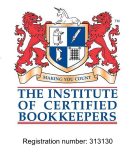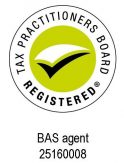Bookkeeping explained
What is bookkeeping?
Bookkeeping is about understanding how a business works and then providing accurate figures that enable the business to know exactly how well it is doing.
Every business, no matter how large or small, is required by law to ‘keep books’. A business must have up-to-date financial records in order to ensure it pays the required taxes and levies.
“Bookkeeping” is a vital, large part of the overall accounting process which involves recording, analysing and interpreting the financial transactions of a business or individual. A bookkeeper’s duty is to set up financial statements so that an accountant can easily perform legal and tax management in a timely manner.
A skilled and compliant bookkeeper should be able to produce financial records that give business accurate information about its financial activities. These records are critical to the future success of any business.
A good contract bookkeeper is able to:
- Accurately setup accounting systems and software
- Enter transactions
- Perform checks, reconciliations and end of year processes
- Ensure they are up to speed with legislative requirements and management reports
- Undertake payroll duties and compliance
- Legally prepare BAS returns
- Provide general business administrative support
What we do
Difference between Data Entry, BAS Agent/Bookkeeper and Accountant
People often misunderstand, or are confused about the different roles and tasks that can be performed by data entry, bookkeeping and accounting roles. The below tables details some common tasks and the role each discipline plays.
Setup
|
Data Entry |
BAS Agent/Bookkeeper |
Accountant |
|
| Accounting software set up | |||
| Data file and account list | |||
| Correct links, preferences and tax codes | |||
| Cards and inventory items for efficient use | |||
| Opening balances for accounts, debtors etc |
Enter Transactions
|
Data Entry |
BAS Agent/Bookkeeper |
Accountant |
|
| Bills and invoices | |||
| Recurring transactions etc | |||
| Receipts and payments | |||
| Make electronic payments | |||
| Reconcile creditors | |||
| Follow procedural checks |
Checks, reconciliations and end of year processes
|
Data Entry |
BAS Agent/Bookkeeper |
Accountant |
|
| Reconcile reports with BAS returns | |||
| Check accuracy of all reports | |||
| Follow up unreconciled transactions | |||
| Organise and perform system backups | |||
| Reconcile bank and credit card accounts | |||
| Run company data audit and fix problems | |||
| Setup users with passwords and audit trails | |||
| Roll over data file for financial and payroll years |
Payroll
|
Data Entry |
BAS Agent/Bookkeeper |
Accountant |
|
| Set up payroll categories and accounts | |||
| Set up employee cards | |||
| Enter/import time sheets | |||
| Apply payroll legislative requirements | |||
| Process pay, adjustments, leave etc | |||
| Keep track of outstanding entitlements/leave | |||
| Reconcile payment summaries | |||
| End of year payroll rollover and tax table updates |
Other
|
Data Entry |
BAS Agent/Bookkeeper |
Accountant |
|
| Source support from professional advisors | |||
| Assist with profit and loss cash flow budgets | |||
| Suggest cost control measures | |||
| Assist with stock-takes | |||
| Customise invoices, statements and cheques | |||
| Keep legislative and industry knowledge up-to-date | |||
| Troubleshoot problems and suggest record keeping solutions | |||
| Set up procedural checklists and train staff | |||
| Visit premises regularly |
Legal, tax and management
|
Data Entry |
BAS Agent/Bookkeeper |
Accountant |
|
| Set up legal structures | |||
| Legally prepare BAS returns | |||
| Calculate depreciation and interest expenses | |||
| Annual tax returns and tax planning | |||
| Fringe benefits tax returns | |||
| ASIC returns | |||
| Management advice |
The above chart is a generalisation of duties and may not represent every scenario – for example: some accountants also offer bookkeeping services; some data-entry personnel may be qualified to do perform a greater range of tasks.



